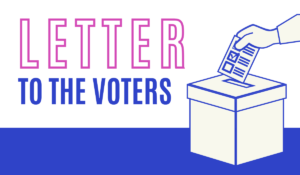Meigs Health Today: Public Health Week April 5-11


Meigs Health Today: Public Health Week April 5-11
By Michelle Willard, Assistant Administrator
This year Public Health Week is April 5-11. What is Public Health? According to the Center for Disease Control (CDC), Public Health is the science of protecting and improving the health of people and their communities. This work is achieved by promoting healthy lifestyles, researching disease and injury prevention, and detecting, preventing, and responding to infectious diseases.

Since 1995, the American Public Health Association (APHA) has brought together communities across the United States to observe National Public Health Week (NPHW) as a time to recognize the contributions of public health and highlight issues that are important to improving our nation’s health.Every year, the APHA develops a national campaign to educate the public, policymakers, and practitioners about issues related to each year’s theme. APHA creates new NPHW materials each year that can be used during and after NPHW to raise awareness about public health and prevention.
During each day of National Public Health Week, we focus on a particular public health topic. Then, we identify ways each of us can make a difference on that topic. These areas are critical to our future success in creating the healthiest nation, and everyone can do their part to help. The following are the themes for National Public Health Week 2021:
- Monday: Rebuilding
- Tuesday: Advancing Racial Equity
- Wednesday: Strengthening Community
- Thursday: Galvanizing Climate Justice
- Friday: Constructing COVID-19 Resilience
- Saturday: Uplifting Mental Health and Wellness
- Sunday: Elevating the Essential and Health Workforce
In the years since 2010 when the Affordable Care Act became the law of the land, the U.S. uninsured rate had dropped to record lows. Now some of the protections for vulnerable populations and measures to ensure affordability are being reversed. Today, fewer Americans have access to timely and affordable medical care, and that’s a stumbling block to creating the healthiest nation in one generation. But that’s just one piece of the healthiest nation puzzle. As we explore access to care and burden of disease, we must invest in equitable solutions to advance public health.
To ensure everyone has a chance at a long and healthy life, we must also tackle the underlying causes of poor health and disease risk. Those causes are rooted in how and where we live, learn, work and play. It’s the child who goes to school hungry and can’t take full advantage of the education that leads to a healthier, more productive adulthood. It’s the low-wage worker who must choose between losing much-needed income and staying home with a sick child. It’s the family that struggles to find nutritious, affordable food anywhere in their community. It’s the student who can’t walk to school because there are no sidewalks. These are the types of conditions that shape the health and well-being of our people and communities.
Thankfully, we can do something. If we focus on inclusion and equity to ensure decisions are made with everyone’s health in mind, we can build healthier communities and, eventually, the healthiest nation. But we need your help to get there.
Join us in observing National Public Health Week 2021 and become part of a growing movement to create the healthiest nation in one generation. We’ll celebrate the power of prevention, advocate for healthy and fair policies, share strategies for successful partnerships, and champion the role of a strong public health system.
This information was provided by the American Public Health Association.









